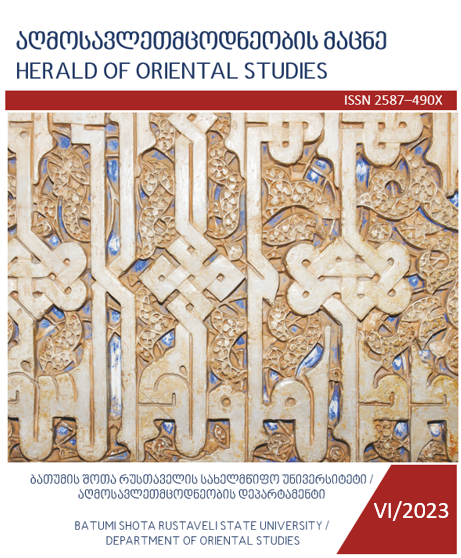Common mistakes made by Georgians when learningTurkish as a second foreign language, and ways to eliminate them
DOI:
https://doi.org/10.61671/hos.6.2023.7363Keywords:
Learning a second language, common mistakes, influence of other languages, factors hindering communication, contrastive learningAbstract
Following English as the first foreign language among optional subjects, the study of a second foreign language has become more
common. If until now, when choosing a second foreign language, preference was given to European languages, then in recent years, based on the established relations between Turkey and Georgia, the choice of Turkish as a second language has taken a priority place.
Learning a language is a complex and multifaceted process. Making mistakes in language learning is an integral and natural part of
this process. The reasons for the errors may vary; this can be caused by the influence of the native or any foreign language, as well as the wrong direction of the learning process. As the survey has shown, despite the modern possibilities of learning a language, which is a serious alternative to the old grammatical-translational approach to language learning, a number of problems remain unresolved, which seem to be an obstacle to communication in a foreign language.
The subject of the research is a discussion of the most common mistakes made by Georgians when learning Turkish as a second language among optional subjects, and focusing on possible ways to eliminate them based on a questionnaire, in the light of modern opportunities for learning the language and the practical application of the acquired knowledge. A2, i.e. elementary level, has been chosen as the target level of the study, and it involved 26 university students, who do not specialize in Turkish language and literature, but study Turkish as a second language in optional subjects. A clear picture of common mistakes revealed by a questionnaire survey poses the following task for us: when learning a language, first of all, along with other environmental learning factors, it is necessary to oppose and contrast native and foreign languages. Language learning should take place on the basis of a comparison between the native and target languages, with special attention and emphasis on grammatical and lexical factors and expected errors, which are associated with the influence of the native language, deeply imprinted in the mind.
Downloads
Downloads
Published
How to Cite
Issue
Section
License

This work is licensed under a Creative Commons Attribution-ShareAlike 4.0 International License.


































